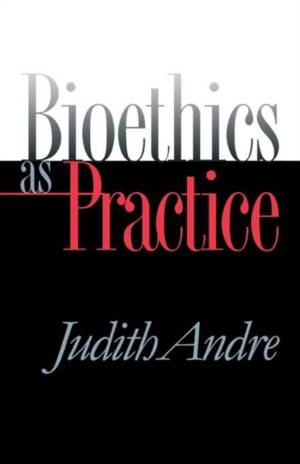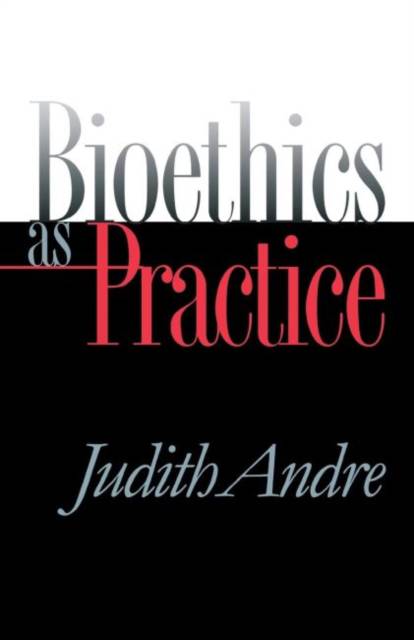
- Retrait gratuit dans votre magasin Club
- 7.000.000 titres dans notre catalogue
- Payer en toute sécurité
- Toujours un magasin près de chez vous
- Retrait gratuit dans votre magasin Club
- 7.000.0000 titres dans notre catalogue
- Payer en toute sécurité
- Toujours un magasin près de chez vous
57,95 €
+ 115 points
Description
Those who work in bioethics and the medical humanities come from many different backgrounds, such as health care, philosophy, law, the social sciences, and religious studies. The work they do also varies widely: consulting on ethical issues in patient care, working with legislatures, dealing with the media, teaching, speaking, writing and more.
Writing as a participant in this developing field, Judith Andre offers a model to unify its diversity. Using the term "bioethics" broadly, to include all the medical humanities, she articulates ideals for the field, identifies its temptations and moral pitfalls, and argues for the central importance of certain virtues. Perhaps the most original of these is the virtue of choosing projects well, which demands not only broadening the field's focus but also understanding the forces that have kept it too narrow. Andre offers an imaginative analysis of the special problems presented by interdisciplinary work and discusses the intellectual virtues necessary for its success. She calls attention to the kinds of professional communities that are necessary to support good work.
The book draws from interviews with many people in the field and from the findings of social scientists. It includes the author's personal reflections, several extended allegories, and philosophical analysis.
Writing as a participant in this developing field, Judith Andre offers a model to unify its diversity. Using the term "bioethics" broadly, to include all the medical humanities, she articulates ideals for the field, identifies its temptations and moral pitfalls, and argues for the central importance of certain virtues. Perhaps the most original of these is the virtue of choosing projects well, which demands not only broadening the field's focus but also understanding the forces that have kept it too narrow. Andre offers an imaginative analysis of the special problems presented by interdisciplinary work and discusses the intellectual virtues necessary for its success. She calls attention to the kinds of professional communities that are necessary to support good work.
The book draws from interviews with many people in the field and from the findings of social scientists. It includes the author's personal reflections, several extended allegories, and philosophical analysis.
Spécifications
Parties prenantes
- Auteur(s) :
- Editeur:
Contenu
- Nombre de pages :
- 272
- Langue:
- Anglais
- Collection :
Caractéristiques
- EAN:
- 9780807855836
- Date de parution :
- 30-08-04
- Format:
- Livre broché
- Format numérique:
- Trade paperback (VS)
- Dimensions :
- 134 mm x 204 mm
- Poids :
- 299 g

Les avis
Nous publions uniquement les avis qui respectent les conditions requises. Consultez nos conditions pour les avis.






